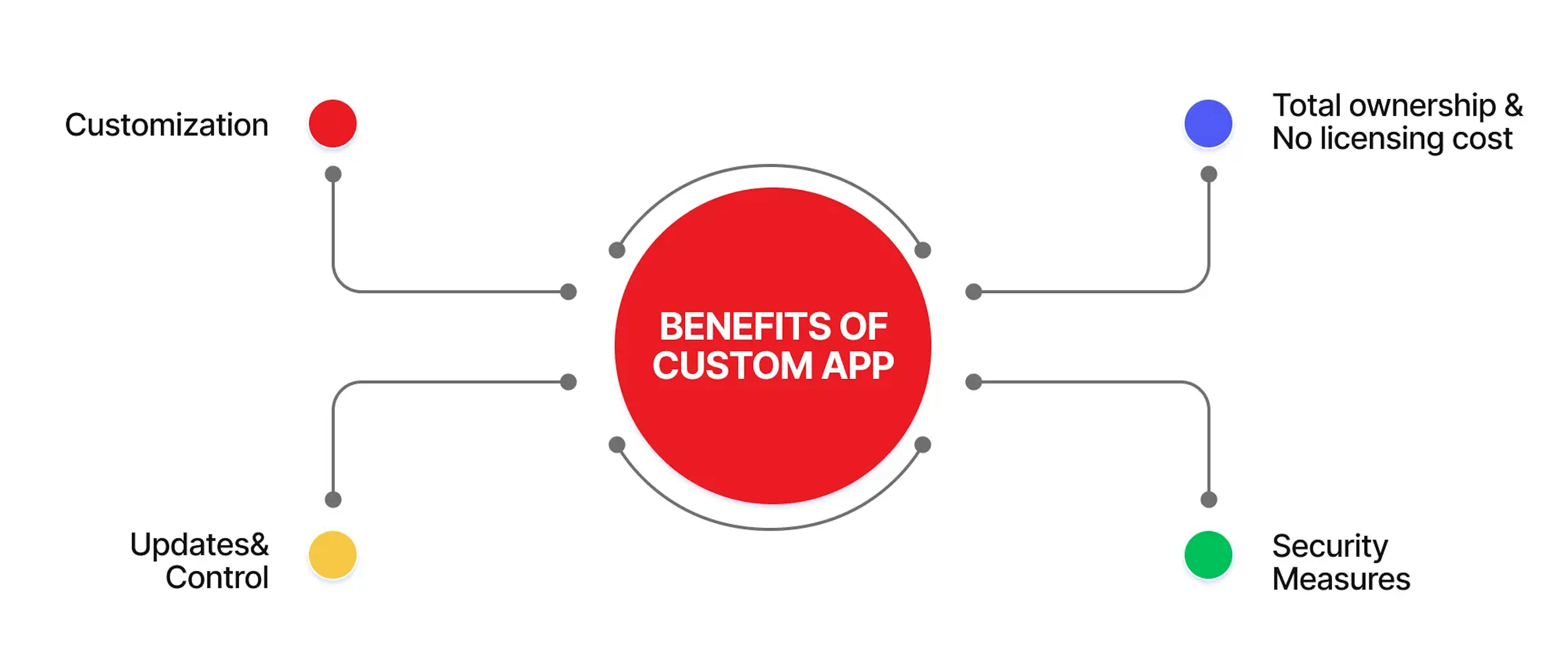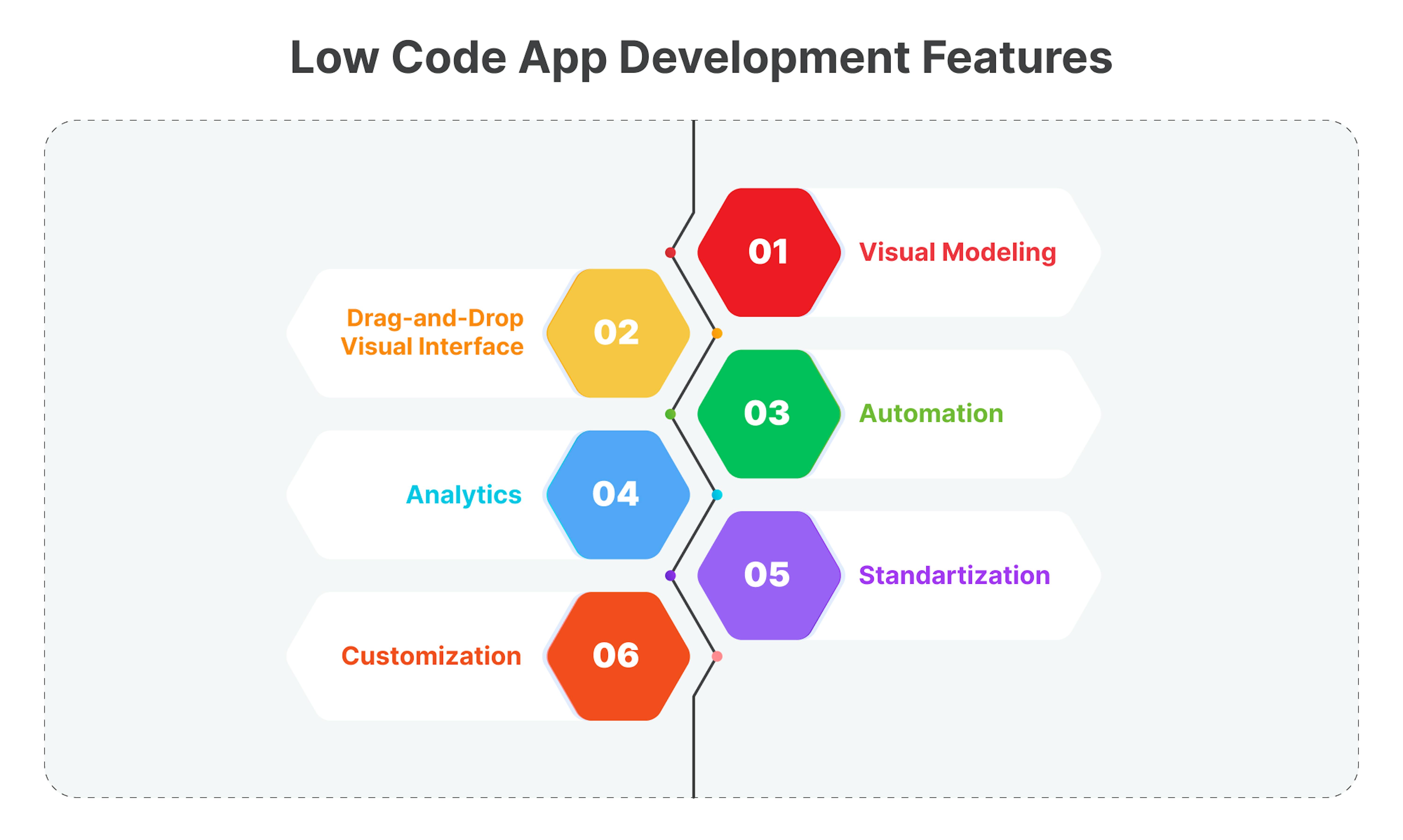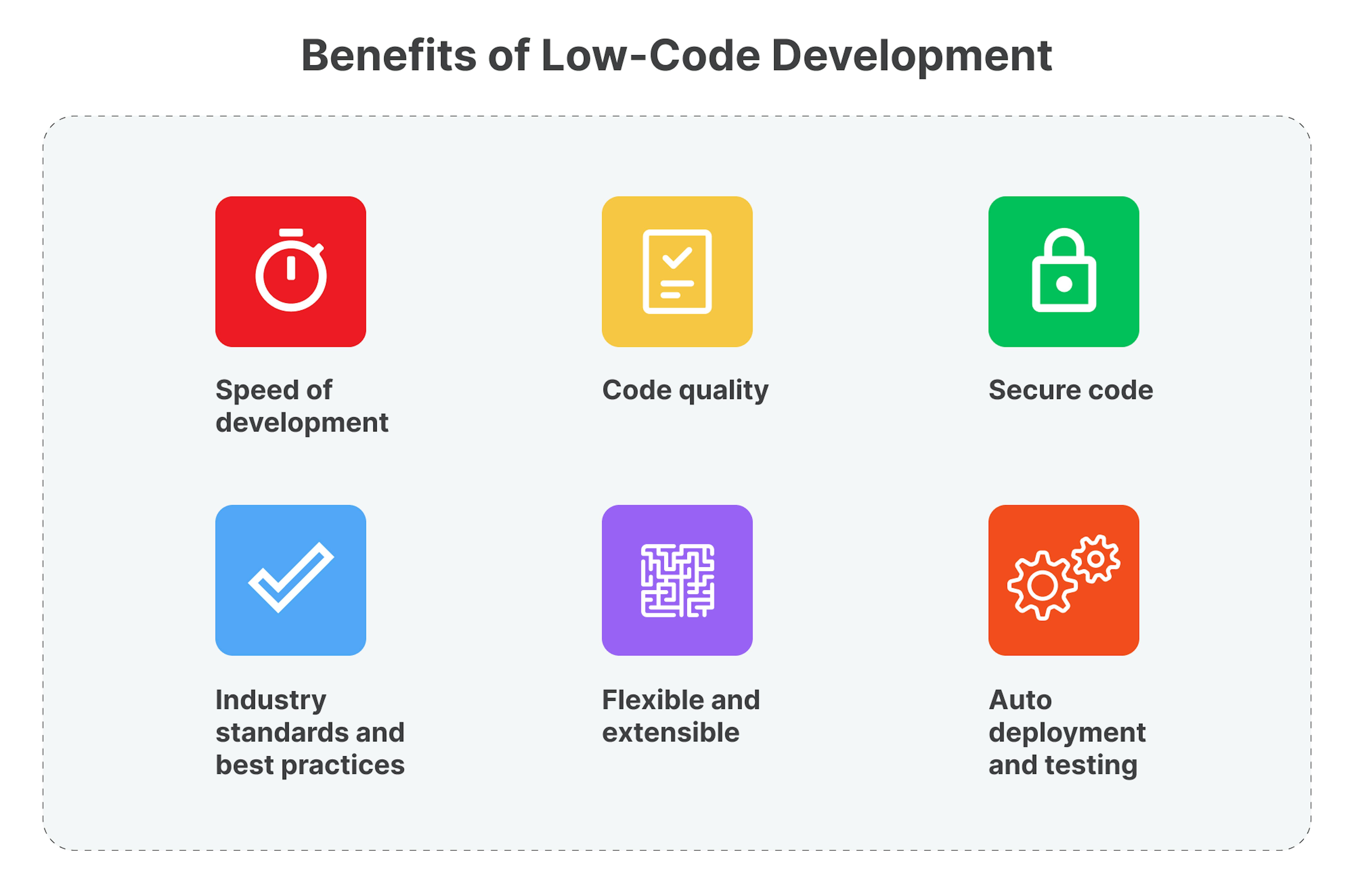Consider developing an app like popular platforms, such as Uber, Netflix, or Amazon? In the realm of on-demand app development, where choices abound and the decision-making process can be daunting, 3 primary options stand out: custom applications, app clones, and low-code apps. Each has its own advantages.
Explore this comprehensive guide on app development approaches to learn benefits and potential pitfalls and our insights into white-label apps, custom app development, and low-code solutions.
What is a white-label app?
A white-label app is a pre-built native application developed by a third-party provider. Businesses can purchase and personalize these apps to align with their brand identity. This customization can extend to adding unique functionalities and features that are needed to cater to specific customer requirements.
When a company acquires a white-label app and rebrands it as its own, customers can conveniently access and download it from popular platforms like Apple App Store and Google Play Store.
These white-label apps, featuring various tools and capabilities, are typically industry-specific. For example, eCommerce apps are equipped with search filters and streamlined checkout processes, whereas white-label restaurant apps offer functionalities tailored for food ordering, setting up deliveries, and managing reservations.
A white-label mobile app is most beneficial for:
- Startups with budget constraints.
- Pioneering businesses are entering unique market niches.
- Companies seeking simple app functionalities, like eCommerce brands, without complex discount systems.
- Offline service providers include gyms, salons, florists, mechanics, dry cleaners, and taxi services.
- Enterprises looking to gauge market response to a mobile app.
Pros and cons of white-label apps
In the dynamic app development world, white-label apps have emerged as a compelling option for businesses seeking rapid and cost-effective solutions. These versatile applications offer advantages and drawbacks, making navigating their landscape with insight crucial. Here, we will delve into the pros and cons of white-label apps:

Pros
Low barrier to entry. White-label app development solutions provide a ready-made infrastructure and ecosystem, simplifying launching an app development business. This affordability and efficiency empower individuals to enter entrepreneurship or enhance their current business ventures with reliable white-label solutions.
Easy brand credibility. Providing smooth, advanced solutions is crucial for gaining customer trust and loyalty. White-label platforms streamline app development, enabling businesses to tailor products with their branding to improve customer experience.
Zero backlog. App development agencies often face project backlogs and associated issues. Embracing white-labeled solutions can eliminate these constraints, boost staff efficiency, and open doors to growth and revenue opportunities.
Faster time to market. White-labeled solutions, like no-code app builders, speed up development and time-to-market. This efficiency allows businesses to take on more projects and reduce maintenance, improving staff productivity.
Financially rewarding. These factors boost business growth and profits with white-labeled app solutions. Companies can produce cost-effective apps in bulk and monetize them, benefiting both businesses and customers.
Cons
Customization and scalability challenges. A major challenge with white-labeled app development is limited customization and scalability. Many providers use the same framework for all apps, causing design and functionality overlaps and potential rejections. However, platforms like AppMySite, offer more flexibility and allow you to build apps from scratch.
Ownership and authority issues White-labeled apps, created by one company but sold by another can lead to accountability, ownership, and control issues. Depending on third parties for updates may result in delays and complications. Consider transparent online solutions with clear terms and policies.
How much does it cost to create a white-label mobile app
Several factors influence the cost of building a white-label mobile app, including its complexity, for which platforms it will be built (iOS, Android, or both), how many features it includes, where the development team is located, and how experienced it is.
Here are some rough estimates for the cost:
- Simple white-label app: $10,000–$50,000
- Mid-sized white-label app: $50,000–$150,000
- Complex white-label app: $150,000 or more
These cost estimates are approximate, and the actual expenses for developing a white-label mobile app may vary depending on the project's unique requirements.
What is a custom app development?
Custom application development is a process that involves creating software that fits the needs of the organization's users. Developers use various languages to create mobile apps based on user preferences.
Unlike the traditional applications that other companies use, a custom application is designed for the specific needs of the original company. This type of application can be handled by full-stack development companies, which have the necessary access to it.
Elevate your business with our сustom software development service. At Mad Devs, we specialize in crafting tailored software and hardware solutions designed to align seamlessly with your unique business needs and objectives. Our expertise lies in optimizing and modernizing your operations, paving the way for continuous advancement. Experience the power of innovation through our custom solutions.
Let’s look at the advantages and disadvantages of custom applications.
Pros and cons of custom app development

Pros
Specific. One of the biggest advantages of custom software development is its ability to create software that fits your specific needs. This is very helpful when you have a unique set of requirements and want to customize the software. Moreover, a custom application is a type of software that focuses on the needs of an independent business. It differs from other types of applications since the details of the domains and industries are considered during the development process.
Updates and control. When you choose a custom software that has been designed with the needs of a wide range of people in mind, it will likely be updated to meet these needs. You can decide when and how new features and updates will be implemented in the software. This allows you to keep up with the changes and ensure that your application is still functional. You can also work with the developers to implement fixes and other changes as needed. This ensures that your app can scale up.
No additional licensing cost and total ownership. Most off-the-shelf sites are hard to monetize due to the lack of ownership over the program. With custom app development, it won’t be an issue for your company. And remember that licensing fees can be significant.
Even better security measures. Because of how easy it is for hackers to find vulnerabilities in off-the-shelf software, they are always looking for new ways to attack their targets. With custom solutions, they embed special security measures into their websites' code, making them harder to break into. Additionally, your development team will have an alert system set up to notify you whenever someone tries to access your site.
Cons
There are some disadvantages that should be considered.
Cost . One of the biggest disadvantages of using custom software is its higher cost than off-the-shelf options. Although this may seem like a huge issue, the savings you and your staff can make by implementing the customized software will quickly offset the costs.
Time. It can take a lot of expertise and time to determine your company's needs and the project's requirements for custom software development. So it can take longer than the implementation of off-shelf solutions.
How much does custom app development cost
The cost of custom app development can vary widely depending on several factors, including:
- The complexity of the app
- The number of features and functionality
- The platform(s) the app will be developed for (Android, iOS, or both)
- The experience and location of the development team.
Here is a rough breakdown of the cost of developing a custom mobile app based on complexity:
- Simple app: $10,000–$50,000
- Mid-sized app: $50,000–$150,000
- Complex app: $150,000+
Therefore, if we are talking about applications with various functionalities, then usually, developing an application can cost from $40,000 to $300,000 or even more.
What is low-code app development?
Low-code is a visual application development method that shifts coding from traditional text-based environments to a model-driven, drag-and-drop interface. This approach makes application development accessible to individuals with varying levels of expertise, including professional developers, beginners, subject matter experts, business stakeholders, and decision-makers.
Low-code application development platforms (LCAPs) simplify and automate every aspect of the application lifecycle, streamlining the development process with features that enhance accessibility and accelerate development.
There are a number of key features that make low-code development a versatile and efficient approach for building a wide range of applications.

- Visual modeling
Enhance developer productivity with drag-and-drop features and an intuitive visual user interface that caters to both professional and citizen developers. Model-driven development enables real-time visualization and one-click deployment, simplifying the app-building process. - Drag-and-drop visual interface
Low-code development platforms are equipped with a user-friendly drag-and-drop visual interface, making app development as easy as coloring for children. This eliminates the need for writing lengthy and complex lines of code, making the development process more manageable and efficient. - Automation
Automation is a key aspect of low-code development, where the platform simplifies app creation through drag-and-drop actions, similar to ordering a dish from a chef who prepares it exactly to your liking without needing step-by-step instructions. Low code automation streamlines app development. - Analytics
These platforms also offer support for analytics, dashboards, and business intelligence applications, allowing users to access valuable data, receive alerts, and take prompt actions. - Standardization
Standardization is a vital feature in top-tier low-code platforms. It ensures that all users, whether developers or non-developers, follow the same set of protocols and standards during software development, promoting consistency and collaboration. - Customization
These options are readily available in low-code development platforms, enabling non-developers to modify application templates, HTML, or graphical user interfaces to meet specific requirements.
Discover the no-code and low-code development market's rise and its impact on the future of coding. Explore the middle ground between these platforms and traditional development in our article.
Pros and cons of low-code application development
Explore the advantages and disadvantages of low-code application development.

Pros
Faster development. Low-code platforms provide visual interfaces, pre-built components, and drag-and-drop functionality, enabling developers to create applications more quickly compared to traditional coding approaches. This can significantly reduce development time and accelerate time-to-market.
Code quality. The need for quicker software delivery frequently results in subpar code quality, which can detrimentally impact the usability, reliability, availability, and performance of the software. Regrettably, certain development teams employ less experienced developers, neglect industry best practices, and generate code of inferior quality. Ultimately, low-quality code gives rise to substantial issues.
Security. Ensuring code and data security is critical due to rising cyber threats. Low-code platforms adhere to industry standards to protect against vulnerabilities and data breaches.
Industry-standard and best practices. Many low-code platforms adhere to industry standards and best practices, producing top-notch code while crafting recommended user experiences.
Agility and flexibility. Low-code platforms offer flexibility in modifying and iterating applications. Developers can quickly make changes and updates to the application's design, features, and functionality, allowing for agile development and faster response to changing business requirements.
Auto deployment and testing. Software release cycles involving building, testing, and deployment can be time-consuming without CI/CD practices. Low-code platforms automate these steps, leading to quicker software delivery cycles.
Cons
Limited customization. While low-code platforms offer pre-built components and visual interfaces, they may have limitations regarding customization. Developers can encounter challenges if they require highly specific or complex functionality that is not readily available in the platform's pre-built components.
Platform lock-in. Adopting a specific low-code platform may result in vendor lock-in. Once an application is built on a particular platform, migrating or switching to a different platform can be challenging without significant effort and potential rework.
Complexity for advanced functionality. It is easy to develop straightforward applications with low-code platforms. However, when it comes to complex or highly specialized functionality, developers may find it more challenging to achieve the desired outcomes within the constraints of the low-code platform.
Limited control over infrastructure. In low-code platforms, the underlying infrastructure and hosting environment are often abstracted away. While this can simplify deployment and maintenance, it may limit the control and customization options for infrastructure-related decisions.
Learning curve. Although low-code platforms simplify application development, understanding the platform's features, capabilities, and best practices still requires some learning. Business users and developers may need to invest time in learning how to use the platform effectively.
How much does low code app development cost
The cost of low-code app development can significantly vary based on several factors, such as the complexity of the app, the features and functionalities required, the development platform used, and hourly rates or licensing fees associated with the platform.
For simpler low-code apps with basic features, you might find relatively affordable solutions or even offer free plans with limited capabilities. However, the costs can be considerably higher for more complex and customized low-code applications with advanced features, integration with other systems, and enterprise-level support.
Here is a rough estimate of the cost of app development based on the complexity of the app:
- Simple app: $5,000–$20,000
- Medium complexity app: $20,000–$50,000
- Complex app: $50,000–$200,000
It's essential to work closely with your development team or low-code platform provider to get a precise estimate tailored to your specific project requirements.
White label vs custom vs low-code app development: What is better for your business
Often, customers who come to us think that:
- Custom development only for large companies.
- Clones of applications are made for less money and faster.
- Low-code platforms are only for simple apps.
Choosing between white-label, custom, and low-code app development depends on your business's specific needs and goals. As we mentioned above, each approach has its advantages and disadvantages.
On the one hand, white-label app development involves using pre-built solutions that can be customized to match your branding and requirements. It's a cost-effective and time-efficient way to launch an app quickly.
On the other, custom app development offers complete flexibility and control over every aspect of the app. It's ideal for businesses with unique or complex requirements but can be more time-consuming and expensive.
The third one, low-code app development, provides a middle-ground solution, allowing you to create customized apps with less coding. It's great for accelerating development speed while maintaining some level of customization.
If you doubt what is better for you, a clone or custom development, contact our experts, and we will help you. We will find the best terms for you and provide the best expertise to meet your business needs and budget.
Our verdict
Professional mobile app development is a complex endeavor, but its rewards make it an attractive option for delivering app solutions. Factors like budget, talent availability, target audience, and end goals must be considered when choosing a development approach. Custom app development is suited for those who desire full control over every product development and maintenance aspect.
However, if speed, efficiency, and cost-effectiveness are your priorities, white-label app development is the way forward. It offers numerous advantages, especially in a competitive landscape where time is crucial and building from scratch can be challenging. In conclusion, we recommend white-label app development as it enables you to offer tested solutions, reducing the challenges and risks of starting an app development business from scratch.











